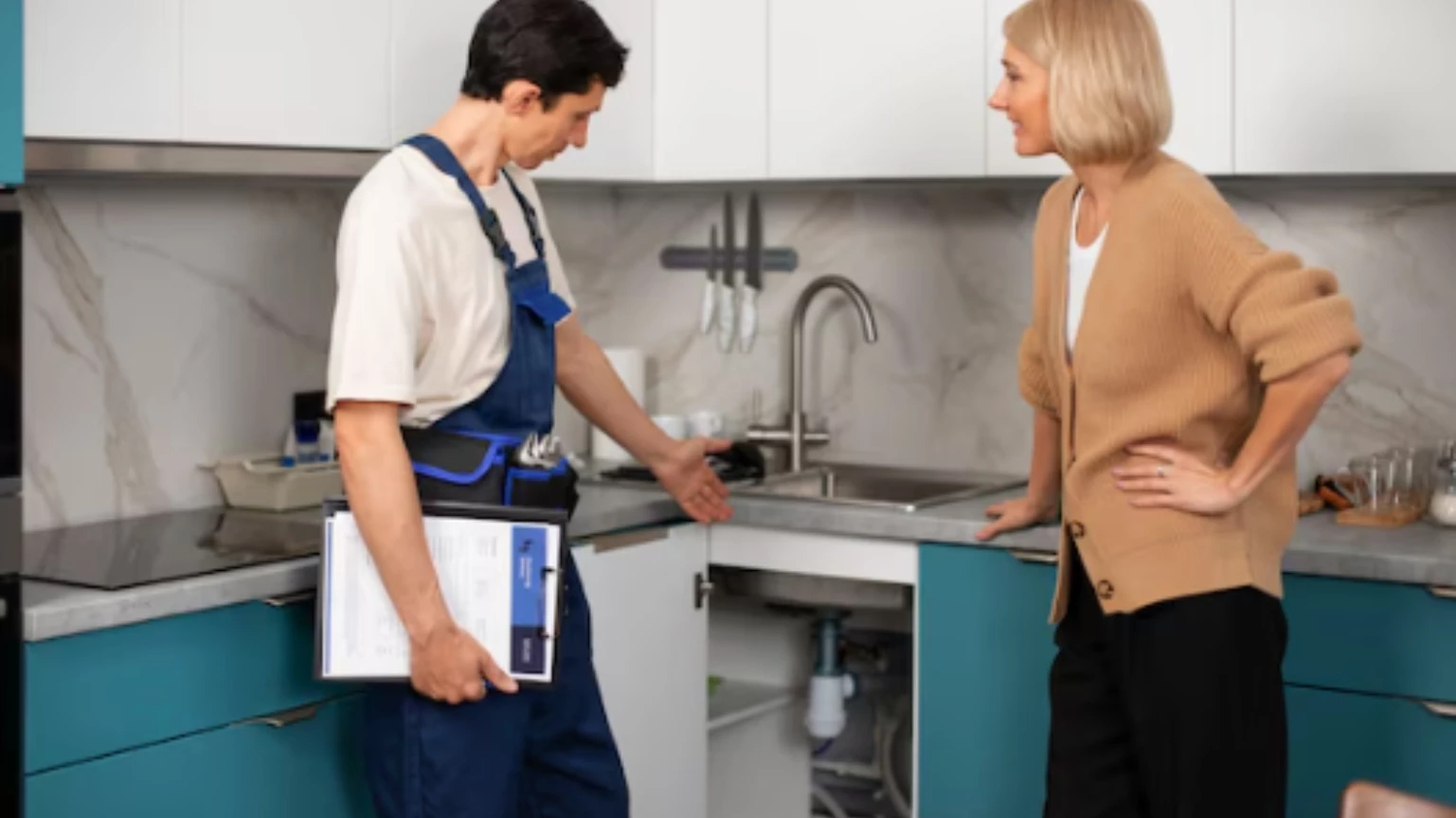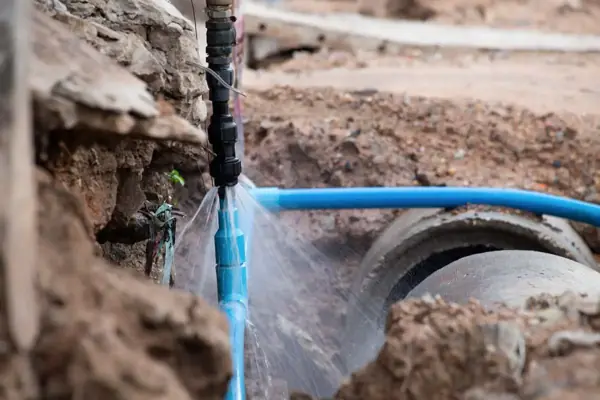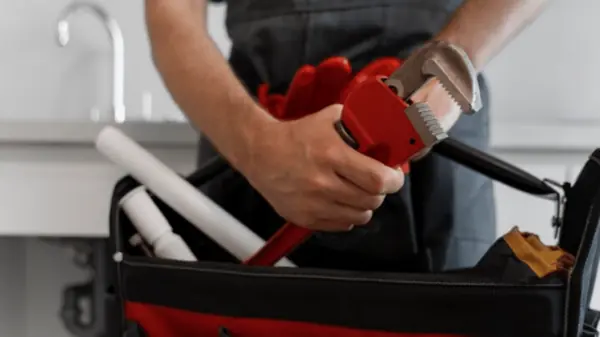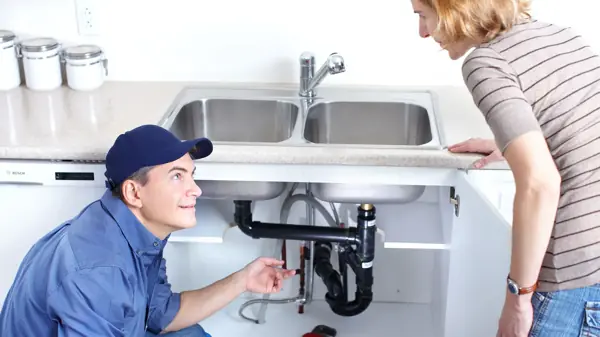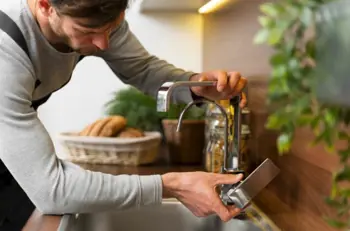Every kitchen, at one point or another, faces plumbing issues that can range from mildly annoying to seriously disruptive. Some of the most common kitchen plumbing problems include leaky faucets, clogged drains, and malfunctioning garbage disposals. These issues not only inconvenience your daily routine but can also lead to larger, more costly problems if not addressed promptly.
Fortunately, many of these problems have straightforward fixes that you can often manage on your own with just a few tools and a little know-how. Whether you’re dealing with a drip, a block, or a breakdown, understanding how to tackle these issues can save you time, money, and frustration.
What are the most frequent plumbing issues homeowners face in their kitchens?
Homeowners often face several frequent plumbing issues in their kitchens, including:
- Clogged Drains: These are caused by food particles, grease, and Debris building up in the pipes. Regular cleaning and using drain filters can help prevent this issue.
- Leaky Faucets typically result from worn-out washers, O-rings, or seals. Replacing the faulty components can fix them, conserving water and reducing utility bills.
- Low Water Pressure is often caused by mineral buildup in the faucet aerator or a partial pipe blockage. Cleaning or replacing the aerator usually restores normal water pressure.
- Garbage Disposal Issues: Malfunctions include jams, strange noises, or the disposal not turning on. These can often be resolved by manually turning the blades with a hex key, pressing the reset button, or checking the power connection.
- Leaking Pipes: Leaks under the sink can occur from loose connections, worn-out gaskets, or corroded pipes. Tightening connections or replacing damaged parts typically fixes the problem.
- Dishwasher Leaks are caused by issues with the water supply line, drain hose, or door gasket. Checking and maintaining can avoid leaks and water damage.
- Backed-Up Sink: Often a result of clogs in the main drain line. A plunger or plumbing snake can usually help clear the blockage.
- Foul Odors: Often arise from food debris trapped in the garbage disposal or pipes. Cleaning the disposal and using baking soda and vinegar in the drain can eliminate odors.
Proper maintenance and repairs can prevent common kitchen plumbing issues and ensure a smoothly functioning kitchen.
How can I identify the cause of a leaky faucet in my kitchen?
To identify the cause of a leaky kitchen faucet, follow these steps:
- Identify Faucet Type: Determine if it’s a compression, ball, cartridge, or ceramic disk faucet. Each has different components that may cause leaks.
- Check the Handle: Turn off the water, remove the handle, and inspect for visible damage or wear.
- Examine the Washer: Check and replace worn-out washers at the bottom of the stem assembly in compression faucets.
- Inspect O-rings: Check and replace damaged O-rings in cartridges and ball faucets around the spout and cartridge.
- Check the Cartridge: Remove and inspect the cartridge for cracks or wear, replacing it if necessary.
- Inspect Valve Seats: Look for corrosion or buildup on valve seats inside the faucet body; clean or replace them.
- Examine Seals: Check and replace worn or damaged seals in ceramic disk faucets.
- Tighten Loose Parts: Ensure all screws, nuts, and bolts are correctly tightened.
- Test the Faucet: Reassemble and turn the water back on to check if the leak persists.
- Consult a Professional: Consider consulting a professional plumber if the leak continues.
Following these steps helps systematically identify and fix the cause of a leaky faucet.
What steps should I take if my kitchen sink drains slowly or clogs?
If your kitchen sink drains slowly or clogs, follow these steps to address the issue:
- Remove Debris from the Drain: Clear visible Debris from the sink drain. Use a sink strainer to prevent future blockages.
- Boiling Water: Pour boiling water down the drain to dissolve grease and soap buildup. Repeat if necessary.
- Plunge the Drain: Use a plunger to dislodge the clog. Have enough sink water to cover the plunger’s cup and create a seal.
- Use a Plumbing Snake: If plunging doesn’t work, a plumbing snake can clear the blockage auger. Place the snake in the drain and rotate it to catch the blockage.
- Baking Soda and Vinegar: Pour a baking soda and vinegar mixture draining away. Wait 15–30 minutes and flush with hot water. This can help break down organic material.
- Clean the P-Trap: Place a bucket under the sink, remove the P-trap (the curved pipe under the sink), and clean out any debris. Reassemble the trap and test the drain.
- Check for Venting Issues: Ensure the sink’s vent is not blocked. A blocked vent can slow drainage. If you suspect a venting issue, consult a professional plumber.
- Use a Commercial Drain Cleaner: As a last resort, use a commercial drain cleaner. Follow the instructions carefully, as these chemicals can be harsh and damaging to pipes if misused.
- Regular Maintenance: To prevent future clogs, flush the drain with hot water, use a sink strainer, and avoid pouring grease or large food particles down the drain.
- Call a Professional: If the clog persists or you can’t clear it, call a professional plumber to assess and fix the issue.
Following these steps can effectively address a slow-draining or clogged kitchen sink.
Can I take any preventive measures to avoid future kitchen plumbing problems?
Yes, you can take several preventive measures to avoid future kitchen plumbing problems:
- Use Sink Strainers: Install sink strainers collect food and debris before they go into the drain preventing clogs.
- Avoid Pouring Grease Down the Drain: Collect grease in a container and dispose of it in the trash. Grease can solidify and cause blockages.
- Run Hot Water Regularly: Periodically run hot water down the drain to help dissolve grease and keep the pipes clear.
- Dispose of Waste Properly: Avoid putting fibrous foods, coffee grounds, eggshells, and large food particles down the garbage disposal. These items can cause clogs and damage the disposal.
- Clean Garbage Disposal: Regularly clean the using ice cubes and lemon peels to pulverize rubbish remove buildup and odors.
- Use Baking Soda and Vinegar: Monthly, throw vinegar and baking soda down the drain, then hot water helps clear minor clogs and maintain drain cleanliness.
- Avoid Chemical Drain Cleaners: Refrain from harmful chemical drain cleaners can damage pipes over time. Opt for natural solutions or mechanical methods like plungers and snakes.
- Inspect for Leaks: Regularly check for leaks under the sink and around faucets. Early discovery prevents major water damage and costly repairs.
- Maintain Faucets and Fixtures: Periodically inspect and replace worn-out washers, O-rings, and seals to prevent leaks and drips.
- Know Where Your Shut-Off Valves Are: Familiarize yourself with the location of your kitchen’s water shut-off valves. This will help you quickly shut off the water supply in case of a leak or emergency.
- Schedule Regular Plumbing Inspections: Have a professional plumber inspect your kitchen plumbing system periodically to spot and resolve issues before they escalate.
Following these preventive measures can significantly reduce the risk of kitchen plumbing problems and ensure a smooth-running kitchen.
Fix Your Kitchen Plumbing Issues Today!
Fix your kitchen plumbing issues today with Hi-Desert Plumbing. Our experienced team specializes in resolving common kitchen plumbing problems quickly and efficiently. Whether you’re dealing with clogged drains, leaky faucets, or low water pressure, we have the expertise and tools to fix it immediately. We offer reliable, professional service to ensure your kitchen functions smoothly.
Don’t let plumbing problems disrupt your daily life. Contact Hi-Desert Plumbing now for prompt and practical solutions, and enjoy peace of mind knowing your kitchen plumbing is in expert hands. Schedule your appointment today!

